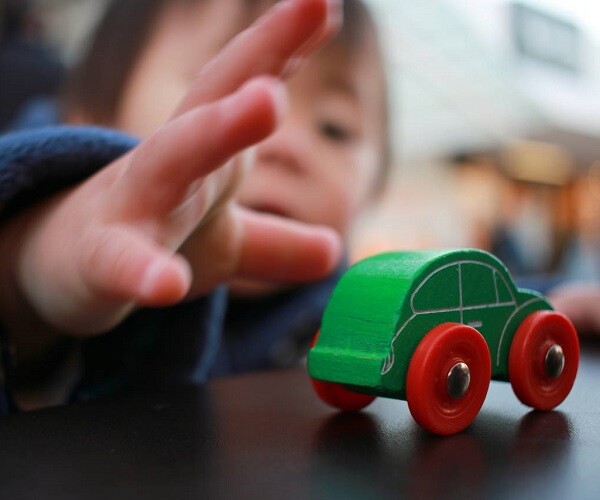Children, especially toddlers, are naturally curious about their surroundings and tend to explore everything within their reach. Initially, they may not fully grasp the concept of ownership and may be intrigued by objects that capture their attention.

Illustrative image.
However, stealing can have negative consequences on a child’s relationships and, if left unchecked, can lead to more serious issues in the future, such as social deviance or a lack of responsibility.
It is crucial to create a loving and supportive family environment, where children feel safe and comfortable sharing their concerns and challenges. This positive atmosphere will help them develop a better understanding of respect and responsibility.
If the stealing behavior stems from psychological issues, parents should seek professional help to address these underlying problems and teach children more positive ways to manage their emotions.
By handling this situation with sensitivity and a positive approach, parents can turn it into a learning opportunity for their children. Creating a loving, educational, and open communication environment will help children understand the value of respect and responsibility.
 Child Psychologist Nguyen Ngoc Vui.
Child Psychologist Nguyen Ngoc Vui.

What are the reasons behind children taking things that don’t belong to them (such as their friends’ toys or their parents’ money)? Is it due to a lack of understanding of ownership, or is it a way for them to express their emotions?
There can be several reasons why a child takes things that don’t belong to them. Firstly, it could be related to an internal factor, such as a psychological condition known as “kleptomania,” where individuals experience a compulsion to take things they don’t need, driven by a desire for thrill and excitement. This can be considered a mental health issue.
Secondly, parents may not have taught their children about boundaries and the importance of respecting others’ possessions. It is essential to educate children about what belongs to them and what belongs to others, and to set clear boundaries on what they should not touch without permission.
In some cases, children may also use this behavior as a way to express their emotions. For example, they may be angry with their parents but lack the communication skills to express it, so they resort to taking or hiding their parents’ belongings as a form of retaliation.
Additionally, children may observe their peers engaging in similar behaviors to fulfill their own needs (such as stealing money to buy toys or food) and feel compelled to follow suit.

How can parents make their children aware of their mistake without making them feel criticized when they take something that doesn’t belong to them?
Firstly, parents should try to understand the motivation behind their child’s stealing behavior. Is it a conscious decision or an impulsive act? Consider the child’s age, the frequency of the behavior, and whether they have been previously disciplined or counseled about it. This will help determine the severity of the issue.
Next, parents need to communicate that this behavior is wrong and will have consequences. Teach children to take responsibility for their actions and ensure they understand the impact of their behavior on others and themselves. Stealing can affect a child’s self-worth, values, and perception of right and wrong as they grow up.

What are some effective ways for parents to teach their children about boundaries and appropriate behavior through words and actions?
One of the most effective ways to teach children about boundaries is to model respectful behavior themselves. For instance, if parents take something from their child without asking, the child may subconsciously view this as acceptable behavior. Therefore, it is crucial for parents to respect their children’s possessions, ask for permission, and refrain from taking anything without their consent.
Parents should also clearly establish boundaries and expectations. Teach children to respect others’ boundaries and communicate their own. Help them understand and express their needs and desires appropriately. For example, instead of taking a friend’s toy, they can say, “I really like your toy. Can I play with it, too?” This encourages self-awareness and helps them navigate social situations without resorting to stealing.

How can parents teach their children the difference between “liking” and “owning” something, and instill respect for others’ possessions?
It is important to teach children about self-worth and individuality. Help them understand that they are unique individuals with their own responsibilities and boundaries. Encourage them to express themselves by saying, “I like this toy, but it belongs to my friend,” or “I want this, but it’s not mine.”
Additionally, parents can help children understand the consequences of their actions. Work together to establish family rules and discuss the outcomes of following or breaking those rules. Teach them that stealing is wrong and explain the potential legal and social repercussions. By analyzing their mistakes and providing guidance, parents can help children develop a stronger sense of morality and empathy.
Can Children Indulge in Mooncakes?
The Mid-Autumn Festival, celebrated on the 15th day of the 8th lunar month, is a cherished tradition among the Vietnamese, with mooncake indulgence being a highlight. However, concerns have arisen regarding the suitability of these delicacies for children. Thus, we delve into this query, offering insights that address the question, “Should children consume mooncakes?” Stay tuned for an enlightening exploration!



































